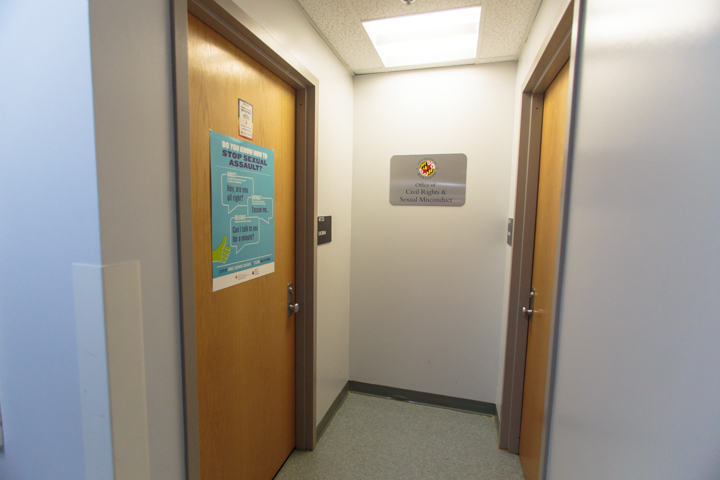The Office of Civil Rights and Sexual Misconduct at the University of Maryland has been underfunded and understaffed since its creation in 2014. Now the SGA is asking students to step in to change that.
A recently submitted student fee proposal is asking for undergraduate and graduate students to pay $34 per academic year to amass funding for this university’s Title IX office. A.J. Pruitt, Student Government Association student affairs vice president, submitted the proposal on behalf of the SGA’s executive board to the Division of Administration and Finance on Monday. Full-time undergraduate students currently pay $933 in student fees for services such as the Health Center, sustainability and athletics.
The proposed fee would generate $998,563 in fiscal year 2018 for personnel and operational needs in the office, including five new positions: a deputy director, two new investigators, a prevention manager and a student rights committee coordinator.
The office currently has a team of four investigators, not including director Catherine Carroll, to handle an increasing case load. It received almost 40 percent more sexual misconduct reports from the 2014-15 academic year to the 2015-16 academic year. Complaints also increased 21 percent and the number of investigations increased 38 percent. And the OCRSM’s operating budget for fiscal 2016 was $725,000 — well under the $1 million Carroll requested.
“We’ve been operating an under-resourced, under-staffed pace for the two and a half years that we’ve existed. … It’s almost like we can’t grow fast enough,” Carroll said.
This underfunding has resulted in prolonged investigations and an inability to keep up with the demands of the students and faculty that make up this 60,000-person community, Carroll said. Sexual misconduct complaints should be investigated and resolved in 60 business days, according to this university’s sexual misconduct policy, but investigations take at least twice that long on average, Carroll said.
“Making sure that students and faculty know about the office is tricky,” Carroll said. “I don’t want to be promoting our office out there as this resource when we’re not adequately staffed to respond to the need.”
Delays in investigations often result from the procedural hoops that investigators must jump through to abide by policies of the university, Carroll said. And with a ratio of one investigator to every 15,000 community members, very little can be done to expedite the process.
“Dragging these things out is in no one’s best interest,” Carroll said. “It produces a lot of anxiety for everybody involved. People … particularly if they’re sexually victimized, they don’t want the school involved in it.”
Title IX requires schools, including universities, that receive government funding to have a procedure for handling reports of sexual misconduct, harassment or violence and to respond promptly to these reports.
As of June 2016, 195 institutions were under Title IX investigations.
Student Conduct Director Andrea Goodwin, whose office decides disciplinary action for students found in violation of the university’s sexual misconduct policy, served on the advisory council.
“One of the most important things or themes that I heard is it shouldn’t be only students that support the OCRSM,” Goodwin said. “It also supports faculty and staff as well, so if students were going to be the sole support of the office, that would be a mistake.”
While SGA President Katherine Swanson said she agrees it isn’t solely students’ responsibility, she added that this has become “an emergency fund situation.”
“This is kind of the only thing left for us to do and there are students that are really struggling because of this.” Swanson said.
Faculty and students representing organizations such as the SGA, Graduate Student Government and CARE to Stop Violence discussed and revised the proposal over the past few weeks. Ultimately, they voted 13-0 with no abstentions on Sept. 13 in support of the fee, Pruitt said.
With the proposal now submitted, the SGA plans to host a town hall meeting Sept. 27 to explain and respond to questions about student fees. It will then vote on legislation to formally support the proposal on Sept. 28 at its general body meeting. University President Wallace Loh would have to approve the proposal for it to go into effect.
Ultimately, the administration needs to be involved to sustain the office’s operations, Pruitt said.
“This proposal doesn’t mean we’re going to stop advocating for the university to continue to take the role it has and to even take a bigger role,” Pruitt said. The administration “know[s] we’re doing our part — now it’s time that we work together to finish.”



